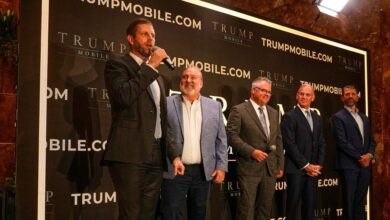US, UK say they’ve cemented trade agreement that Trump calls ‘fair’

By JILL LAWLESS, Associated Press
KANANASKIS, Alberta (AP) — U.S. President Donald Trump and British Prime Minister Keir Starmer announced on Monday that they have finalized a trade deal aimed at reducing tariffs on U.K. imports in the auto and aerospace industries. However, discussions are ongoing regarding the handling of steel production.
During the Group of Seven summit in the Canadian Rockies, Trump and Starmer addressed reporters, with Trump displaying what he claimed to be the signed agreement. There were initial hiccups as Trump mistakenly referred to the United Kingdom as the European Union.
Despite the initial confusion, Trump emphasized that the deal is mutually beneficial and will lead to job creation and economic growth.
“We just signed it,” Trump declared. “And it’s done.”
Starmer described the agreement as a positive development for both countries, signaling strength in their partnership.
Securing this agreement is significant given Trump’s previous threats of imposing high import tariffs, which have caused uncertainty in global markets and raised concerns of a potential trade war.
While Trump has softened his stance on many proposed tariffs, he continues to express the administration’s commitment to negotiating new trade deals with various countries.
Trump assured that the U.K. is exempt from tariffs, stating, “You know why? Because I like them.”
The trade pact signed at the G7 summit follows the May announcement by Trump and Starmer regarding a framework for a trade agreement. The current deal focuses on reducing tariffs for British cars and aerospace materials, with further discussions needed on steel.
The agreement eliminates U.S. tariffs on U.K. aerospace products and lowers the tax on British autos to 10% from the end of the month, with an annual quota of 100,000 vehicles.
While the deal has been welcomed by British industries, particularly the automotive sector, negotiations on reducing tariffs on British steel are still ongoing, crucial for the survival of the U.K.’s steel industry.
The terms of the agreement provide clarity for British businesses, who were previously uncertain about potential tariff increases from the U.S.
Despite the progress made, further discussions are required on pharmaceuticals and the security of supply chains for steel and aluminum products intended for export to the U.S.
Additionally, the agreement allows for the export of beef between the two countries, with restrictions remaining in place on hormone-treated beef entering the U.K.
Published Date:





